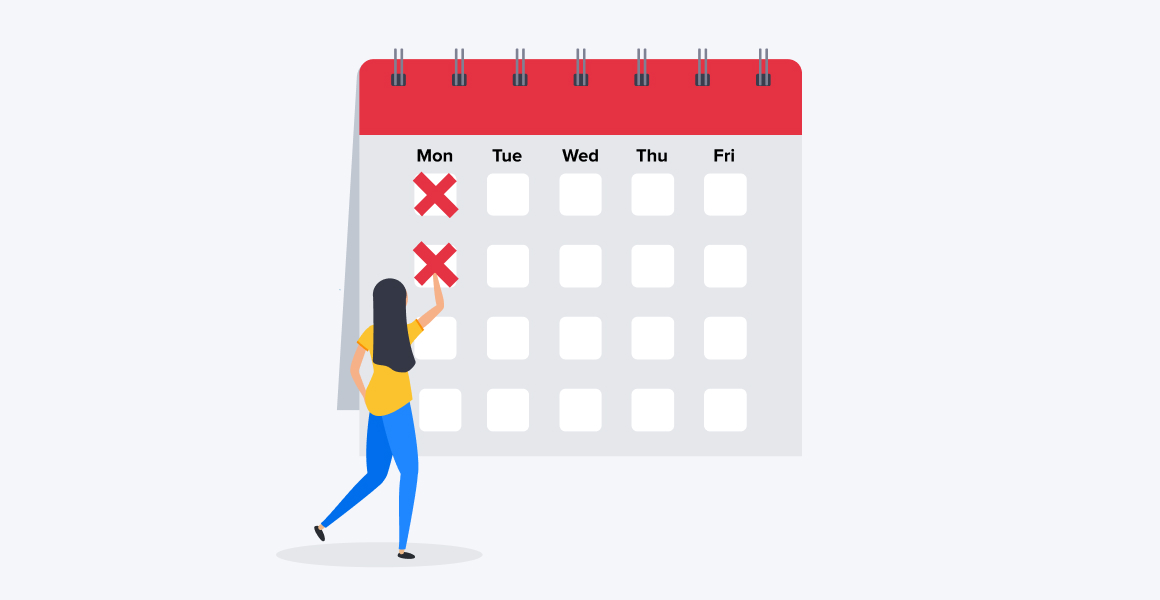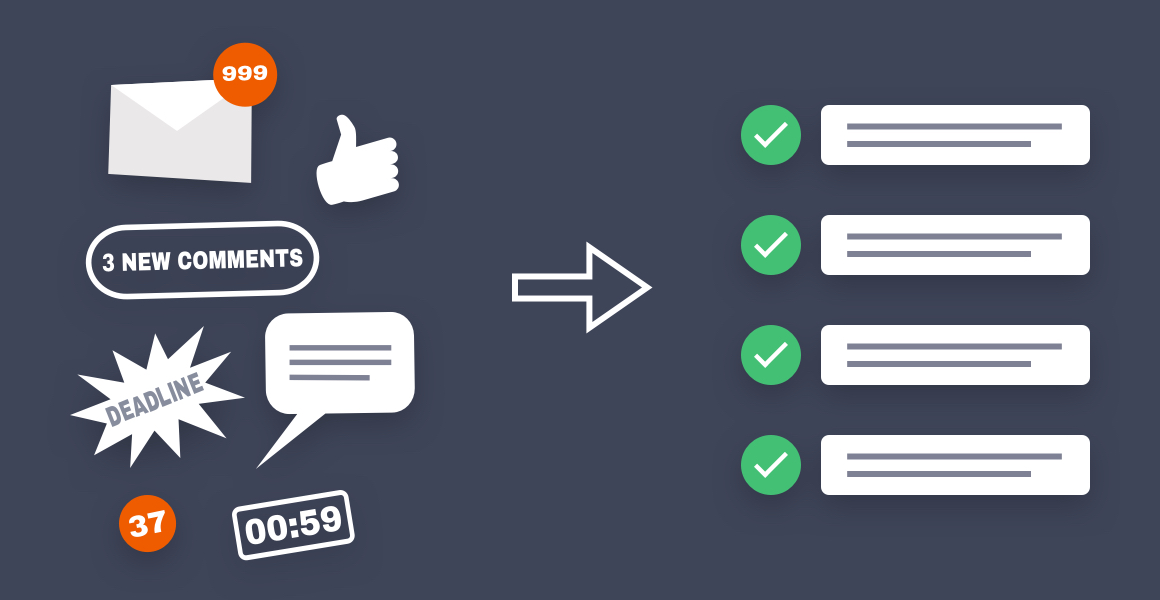Everyone who has a job considers it a “real” job. Essentially any form of labor that you get paid for is a job, and real enough! However, many people who dream of a corporate career think of their initial office position as their first “real job”. Chances are, if you’re preparing for that first role, you’ve spent a lot of time daydreaming about what it’s going to be like.
You’ve probably also spent a lot of time thinking about how to make a great first impression and climb the corporate ladder. No doubt you’ve talked to lots of people and read lots of articles; perhaps you’ve even done an internship or developed a relationship with a mentor. Even the most well-researched office workers are in for a few surprises, though.
We’ve talked to our staff of “office workers” to come up with a list of things they wish they’d known sooner. Corporate America is a massive and complex landscape that everyone could use a little help navigating. Here are a few things that no one tells you about your first office job.
Initiative is crucial
This sounds like one of those things that your parents say and you go “yeah, yeah, yeah” - but it’s true. In all phases of life - even college - you need to meet deadlines or take accountability for things. The difference in your first job is that there is no one there to remind you or push you. In even the most demanding college course, there is a professor to let you know about important dates and a syllabus to help you manage your time. When you get to the workplace, you need to remind yourself of those looming milestones. At the end of the day, you’ll have to do what needs to be done without anyone holding your hand. People who thrive in their careers are those who go above and beyond without being asked.
Your attitude matters more than you think
Results are probably the most important measure of your performance. However, attitude is a key factor in successful careers that is often overlooked. How effective you are in any particular role comes down to so much more than the work. Your demeanor in the workforce and your attitude towards the tasks and your colleagues is going to be noticed by everyone around you, even if they don’t consciously realize it. How people perceive you is really important, and a lot of that comes down to intangible things like how positive you are. Many managers say that they hire for cultural fit and plan for employees to learn the rest as they go. At the end of the day, people simply want to work with others who are pleasant to be around. Showing up each day and being happy to be there will make you a fast favorite with higher-ups.
Related Post: 5 Ways to Bring Wellness into your Workplace
Not everyone wants to be your friend - and that’s a good thing
Offices are complicated places and you’re going to work with all kinds of personalities. That can be tough to deal with because many people spend more time in their office than with their own families and friends. You might meet some terrific lifelong friends at work - but you may not. Along with the person that you hit it off with right away, you might encounter a lazy colleague or a disinterested boss. Spend time learning each coworkers’ style and how you can best work with them to have a productive relationship. In many cases, those relationships won’t evolve into a friendship - and that’s ok. Office politics are complicated enough without introducing ever-evolving friendships. Many seasoned corporate workers agree that your best bet is to find ways to support the person who hired you/your manager without alienating others in the office. Start there and build relationships organically over time.
Your job description is just a starting point
Actually, you may have heard this before - but it’s worth repeating. In the “real world”, you’re probably starting at the bottom. The best way to work your way up is to take initiative and do your best at any tasks you’re asked to do - even beyond the boundaries of your required job duties. There is a lot of work to be done, even outside the scope of what you were hired to do. More experienced colleagues may ask you to do favors for them - and you’re not doing yourself any favors by saying no. You don’t need to be walked all over, but it’s a smart idea to be cooperative and do what you can to make a good impression. This is true even as you advance in your career. There will always be little things that need to be done by somebody - why not you? Automatically saying “that’s outside of my job responsibilities” is a good way to become unpopular at work. If someone asks you to refill the coffee machine - be the best coffee machine filler there ever was! You never know who you might impress.
There’s not much automatic time off
By this point in your life you might be used to spring break or summers off. Very few office environments have built in time off like this. Some places “shut down” between the Christmas and New Years holidays, but even that is a rare perk. It will be up to you to figure out when to take time off and how to manage that time appropriately. A lot goes into taking a vacation once you’re in a professional job. Time off is a finite resource, so think carefully about when you want to use it. It’s important to remember that the time needs to work for not only you, but your team. It won’t make a very good impression to request a vacation at your company’s busiest time of year. Consider who can cover for you and what the impacts to your projects or deadlines will be. Make sure to book plenty of time in advance and get the appropriate approvals. It’s also worth noting that many organizations have employees accrue leave, so longer vacations will be hard to come by at first. It will get better!
Related Post: Is the Five-Day Workweek Coming to an End?
You have to sleep more
This is something that simply doesn’t get talked about enough. When you’re younger, you can bounce back pretty quickly from all-night study sessions or a weekend of partying. However, that gets harder as you get older and have more responsibilities. The truth is it’s very difficult to do well at your job when you are overtired. When you start out at an office job, you should plan to be more tired than usual. You’re probably getting up earlier, commuting, and working at a more mentally draining pace than ever before. Your days might be fuller and you may have the added factors of evening engagements or maybe even moving to a new city or other lifestyle changes. It’s crucial that you make time for rest. No one is going to do it for you. Adults often get in the habit of getting inadequate sleep, and it’s unhealthy for several reasons. Don’t get into this habit right away. You’d be surprised how much you can set yourself apart by simply being well-rested and alert during your work days.
There is very little teaching going on (at least not intentionally)
Unlike in college, where the goal is educating you, at work you have to learn on your own. Most people are not going out of their way to help you learn new things. Only the best managers and mentors who have an inherent understanding of leadership will take the time to teach you. There are also no grades and it’s pretty much a pass/fail environment. It’s on you to get feedback and see how you’re doing and how you can improve. You also shouldn’t expect things to happen slower so that you can absorb everything at your own pace. Employers expect you to hit the ground running. This is one reason it’s a really bad idea to over-reach for a job that you know you’re not qualified for yet. Do what you can to learn how to excel in your current role - even when it requires asking for help.
You won’t have lunch every day
In every other phase of life until now, lunch is a given. You know that at some point in the day, you are going to get a little break and take a few minutes to refocus. Not so in the working world. In your office job, the most crucial thing is getting your work done (on time). You will sometimes have to make concessions to make that happen. In order to meet requirements, you might need to take a later lunch or even work through the hour altogether. In many workplaces, there is no real “lunch hour” - you just eat what you can, when you can. Sometimes that means a few minutes to scarf down a yogurt at your desk. Furthermore, you may need to meet with people who are only available during their lunch hour. There will definitely be times you are about to tuck into a piping hot meal and your boss comes by to chat. The bottom line: enjoy your lunch hour when you can, but don’t take that time for granted.
Related Post: 15 Ways to Optimize Your Daily Workflow
Learn to manage your manager
This is a concept that often comes as a shock to new hires. You have very little to no control over who your manager is going to be, or what they’re like. What you can control is how you “manage up”. Managing up generally refers to working with and supporting your manager to help him/her get their job done as well as possible. To do this successfully, it’s critical to understand your manager’s working style and ultimate goals. Ask to help and don’t wait around until you are approached. Be proactive and think about ways to make your supervisor’s job easier. It’s also important that you have transparent discussions where expectations are clear. You can’t do a good job of helping your manager if they haven’t been clear about what they need - but in many cases, it’s up to you to initiate that dialogue (rather than the other way around). For example, if you know that your boss is slow to respond to email, don’t send an email asking for a time-sensitive approval. Instead, give them a call or walk over to them. Or, if you are trying to schedule a meeting, make sure to check their calendar prior to sending an invite so that you don’t end up going back and forth on scheduling a time. Is your manager a morning person? If it seems like they are tapped by the end of the day, try to have your most important conversations before noon. One of the most crucial aspects of your role is making your boss look good - if you are constantly looking for ways to do that, then chances are you’ll go far.
Working hard doesn’t come down to staying late
It’s very common for those new to the workforce to feel like they need to be at the office until their boss goes home. There once was a time when this was viewed as wise advice. “Never leave the office before your boss” is common - but outdated - guidance. In today’s hyper-digital world, it's not necessary to sit at the office twiddling your thumbs just because your boss is. Your boss may have a personal preference for working late, or maybe the nature of their job requires it. Either way, simply being there is not a way to prove that you’re a dedicated worker. Too many new workers feel the pressure to stay in the office, but just end up sitting there looking at social media. We suggest having a conversation toward the beginning of your employment to get clear on what makes sense. In some roles, it does make sense for you to mirror your manager’s working hours. For example, if you are an Executive Assistant, then it makes a lot of sense to ask your boss if they need anything before you head out for the evening. However, if your role doesn’t specifically dictate that type of arrangement, then have a dialogue to get clear on what the expectation is. It’s perfectly fair and acceptable for you to have a life outside of work, and good bosses are supportive of this. Focus on proving your worth by adding value every day. If you are making the appropriate progress on your projects and making an impact on your team, how late you stay won’t be an issue. When in doubt - be direct and ask! Your boss will appreciate your initiative.
Related Post: Which Productivity Method is Right For You?
You are a representative of your company
Once you work for a company, you are a part of their brand. Every tweet, every Instagram post, and everything you say when you run into clients outside of work reflects on your company. This may seem extreme but it’s just a reality in the working world. The sooner you absorb this fact and take it seriously, the better. On the other hand, once you are hired, you are essentially an ambassador for an organization. This means it’s important that you agree with their mission and values, because people will associate you with those principles once they know you work there. When you sign up for a job, make sure you’re signing up for the entire company - and then act accordingly.
It’s not about you
Did you know that employers like hiring college athletes? Many organizations give a preference - even a subconscious one - to people who played a college sport or participated in the military. That’s often due to the fact that these people have been part of a larger group and worked toward common goals. They tend to “get it” faster than other college grads that it’s not really about them; it’s about the team. It’s great to be an ambitious go-getter who thinks strategically about your career and what your next moves might be. While it’s common in the workplace to think about how each decision will impact your individual prospects, it’s more important to think about how your team’s goals and missions will be impacted. Instead of just thinking about what is best for your career, think about what is best for your organization and their long-term goals. Most of the time those two areas are aligned.
You will make mistakes and (unfortunately) the stakes are higher.
No one is perfect, especially people who are just starting out in their careers. Though you may feel an insane amount of pressure, it’s important to realize that everyone makes mistakes in their first roles. Remember point #7? There may not be a ton of teaching going on, and a lot of what you learn will come down to “sink or swim”. But since you don’t know everything, occasionally you will do the wrong thing. Repeat after me: that is ok. However, you also need to know that those mistakes matter more than other times in your life. If you make a mistake in high school or college, there will be circumstances - but probably not critical ones. Your errors might affect others, or the bottom line for your company. Whereas you have probably gotten used to consequences affecting you only, you will have to understand that the impacts of mistakes are far-reaching in the workforce. That being said, sometimes mistakes can’t be helped and everyone has been there. Don’t make things worse by putting too much pressure on yourself or hiding away once you’ve made a mistake. Try hard to do the right thing and above all, don’t be careless.
There will be times you hate your job
It’s really, really important to get a job you actually enjoy - at least somewhat - because you will likely spend a third of your life there. That being said, it’s pretty much impossible to love your job 100% of the time. There are a lucky few people who do exactly what they love every single day, but don’t be discouraged if you’re not one of them. You might have to deal with clients you don’t particularly like, or you might make a mistake that is hard to recover from. You might dislike particularly busy seasons or a certain aspect of your role. As you grow in your career, you will hone your skills and have more options. Don’t get too down if you have tough days starting out. Everyone has to start somewhere. The important thing is not to jump ship because you have a few bad days - that’s just part of the working world.
Related Post: 5 Ways to Practice Mindfulness at Work
Steady paychecks are as awesome as you would expect
You probably don’t need anyone to tell you this. It’s pretty obvious that getting a check deposited into your account every couple weeks is a nice feeling - especially if it’s for more money than you’ve earned before. Remember that with additional money comes additional opportunities, so it’s a good idea to think carefully about both short and long term goals in advance. Start seriously planning what the future looks like: a new apartment, a car, a vacation….Think about what’s important to you and start your financial planning right away.
At Shift, we are constantly thinking about ways to improve productivity and make people’s working (and personal) lives easier. That’s why we’ve created the desktop app for streamlining and collaborating across accounts and workflows. Try downloading Shift now to see how your efficiency can be improved, in the office or at home. Make sure to follow our blog for other great tips on productivity in the workplace and beyond.




















 Share on Facebook
Share on Facebook Share on Twitter
Share on Twitter







